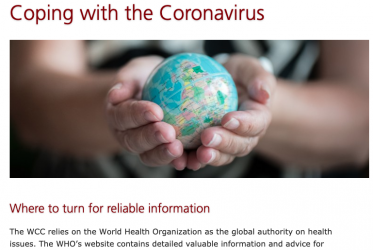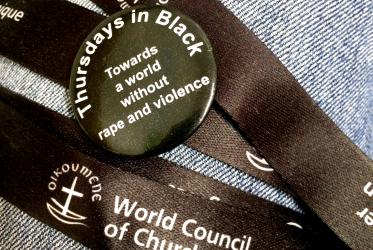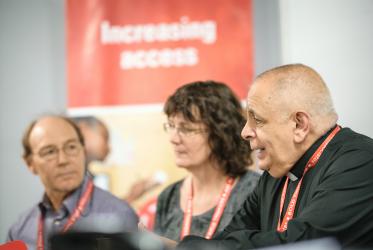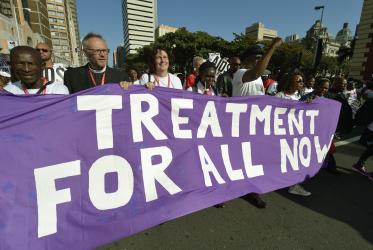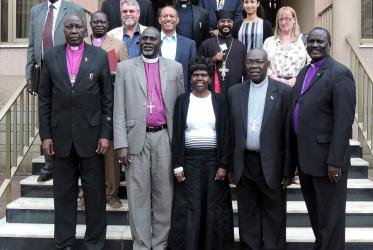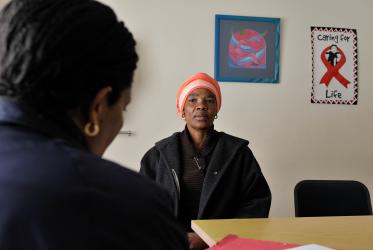Displaying 61 - 80 of 96
G7 must address famine
22 May 2017
In Zimbabwe, connections could strengthen peace
20 May 2017
Youth engagement fundamental to HIV response
18 April 2017
Faith groups march for climate justice
15 November 2016
Kenya: Voice of faith communities crucial in overcoming HIV
14 October 2016
Honest talk blossoms between youth, theologians in Cote d’Ivoire
14 September 2016
AIDS 2016: Coverage of faith response to HIV
22 July 2016
Churches bring strong voice for justice in Zimbabwe
18 July 2016
In Ghana, women bring open minds, honest words
05 July 2016
Local work by faith-based groups key to ending AIDS
27 June 2016

